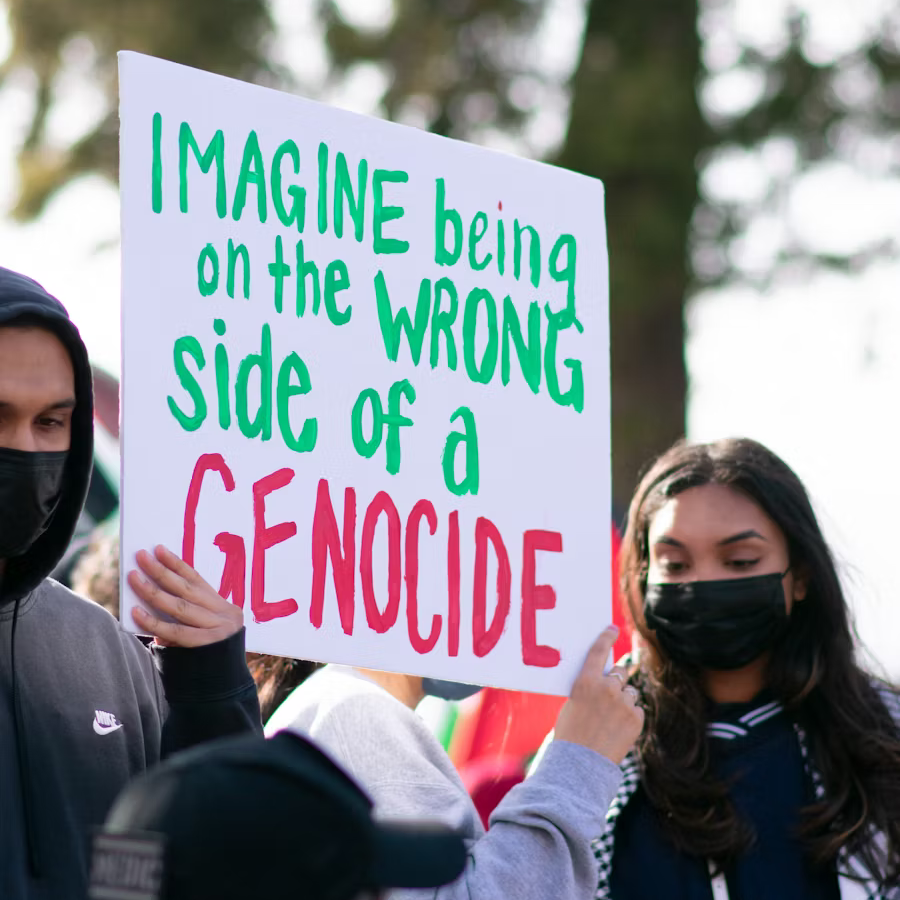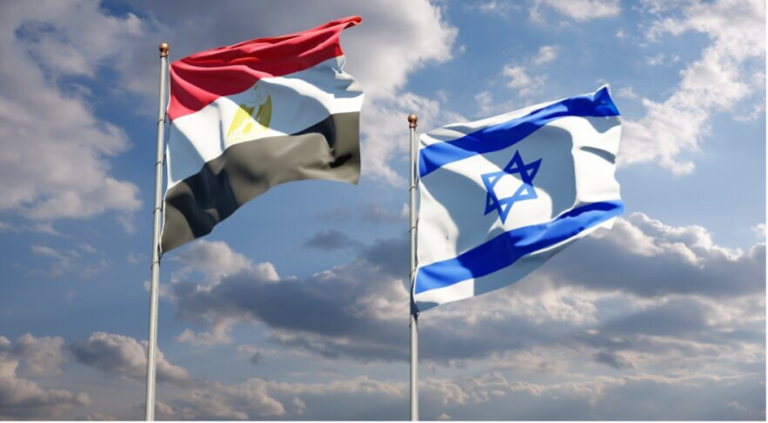Genocide in Gaza: The Collapse of International Law and Global Impunity
Written by Elisa Garbil – 14.08.2025
The war on Gaza has moved far beyond the realm of conventional military conflict. What is unfolding is a methodical, prolonged campaign against an entire civilian population. The destruction of Gaza’s infrastructure, the mass killing of noncombatants, and the deliberate targeting of essential services reflect a calculated strategy to dismantle not just a resistance movement, but an entire society.
Civilians have been killed at staggering rates. Entire neighbourhoods have been flattened in days. Medical systems, food networks, and water supplies have been rendered inoperable. The displacement of more than 80% of Gaza’s population is not collateral, it is coordinated. These actions align with the key legal criteria for genocide, including the infliction of life conditions designed to destroy a group in whole or in part.
This is not merely an ethical outrage. It is a violation of one of the most serious and clearly defined crimes under international law.
The Legal Definition and Its Fulfilment
Genocide, under the 1948 Convention on the Prevention and Punishment of the Crime of Genocide, is defined by acts committed with the intent to destroy, in whole or in part, a national, ethnic, racial, or religious group. These acts include killing members of the group, causing serious bodily or mental harm, deliberately inflicting life conditions to bring about destruction, and preventing births.
Every major component of this definition is evident in the conduct of the war on Gaza. The scale of death, the obliteration of basic infrastructure, and the mass displacement of families are not anomalies of battle; they are the hallmarks of intentional state violence directed at a specific civilian population. Physical destruction is compounded by psychological trauma and the purposeful stripping of civilian dignity and survival mechanisms.
Statements by state actors and official policies have corroborated this intent through operational decisions. But even without verbal declarations, the outcomes and patterns speak for themselves.
Targeting Civilians and Destroying Survival Infrastructure
The destruction of civilian infrastructure has been central to the strategy in Gaza. Hospitals and clinics have been bombed repeatedly. Water and sanitation systems have been targeted, ensuring the spread of disease and the collapse of basic hygiene. Food supplies have been cut off, with bakeries, aid convoys, and warehouses destroyed.
These actions do not meet the standard of proportionality under the laws of war. They are not directed at military assets in contested zones. Rather, they are directed at the social organs of life itself, hospitals, refugee shelters, schools, and housing blocks, with knowledge of the suffering this will cause.
This method of warfare violates the Geneva Conventions, particularly the Fourth Convention, which mandates the protection of civilians in times of war. It also breaches the Rome Statute of the International Criminal Court, which recognises as war crimes the intentional targeting of civilian populations and the use of starvation as a method of warfare.
The destruction has gone beyond the degradation of infrastructure. What is being targeted is the continuation of Palestinian life in Gaza as such, its homes, its memory, its institutions, its children, and its future.

The Silence of Enforcement Mechanisms
The international legal system has, so far, failed to intervene in any meaningful way. Formal declarations, reports, and legal assessments have confirmed the applicability of genocide and war crimes statutes, yet enforcement has not followed. Institutions built to prevent such atrocities, such as the International Criminal Court, the United Nations, and various regional bodies, have not stopped the killing, nor imposed consequences.
Powerful states continue to shield the perpetrators from diplomatic or economic consequences. Arms shipments continue. Trade flows remain uninterrupted. Vetoes block Security Council resolutions. International humanitarian law becomes a symbolic framework rather than a governing force.
This breakdown is not procedural, it is structural. When a state can act with total military impunity while openly defying international conventions, a precedent is set: that legal prohibitions apply only to the weak. The principle of universal accountability collapses.
Systemic Risk and Global Precedent
The unchecked destruction of Gaza signals far more than a regional tragedy. It introduces a systemic risk to the global legal order. If international law cannot constrain state behaviour in the face of overwhelming evidence, then it is no longer law, it is rhetoric.
Future aggressors are now equipped with a model: frame civilian annihilation as counterterrorism, build strong strategic alliances, and disregard international bodies whose authority depends on consensus. The erosion of accountability in Gaza undermines the credibility of every norm established since 1945.
This is not only a legal risk. It is a moral and geopolitical risk. In a multipolar world where authoritarian powers are watching closely, the normalisation of impunity emboldens similar strategies elsewhere, think of Ukraine, Myanmar, Sudan, amongst others. The selective application of law creates a vacuum filled by raw power.

The Failures of Allied Democracies
States that position themselves as defenders of the liberal international order are deeply complicit in the failure to act. Military, diplomatic, and economic support for the assault on Gaza continues, even as evidence of genocide mounts. These states cannot claim ignorance, nor can they separate their legal responsibilities from their political interests.
Under international law, particularly the Genocide Convention, all states have an obligation not only to refrain from committing genocide but to prevent and punish it. Continued arms sales and intelligence sharing with a party credibly accused of genocide directly undermine this obligation.
Failure to act makes these states enablers, not just passive observers, of atrocity. The long-term damage to their credibility, both legally and morally, will outlast the current conflict. Future invocations of international law – to defend Ukraine, to criticise China, to deter aggression elsewhere – will be viewed through the lens of Gaza, and rightly so.
The Illusion of Morality Without Consequence
Condemnations without sanctions. Statements without enforcement. Investigations without intervention. The international response to Gaza has followed this pattern with grim consistency. But legal frameworks were not built to express concern. They were built to prevent genocide.
Moral outrage is meaningless without action. The illusion that legal and ethical standards can exist independently of political will is now unsustainable. Genocide has become not only visible but normalised, and the international community has yet to demonstrate that it possesses the resolve, the mechanisms, or even the willingness, to stop it.

Law on the Brink
What is happening in Gaza is not a tragic anomaly. It is the logical outcome of a global system that claims to uphold international law but repeatedly fails to enforce it when it matters most. The assault on Gaza is a test, not only of the resilience of a people under siege, but of the entire international order that was supposed to protect them.The risk is clear: that law becomes irrelevant, justice becomes optional, and genocide becomes routine.





One Comment
Comments are closed.